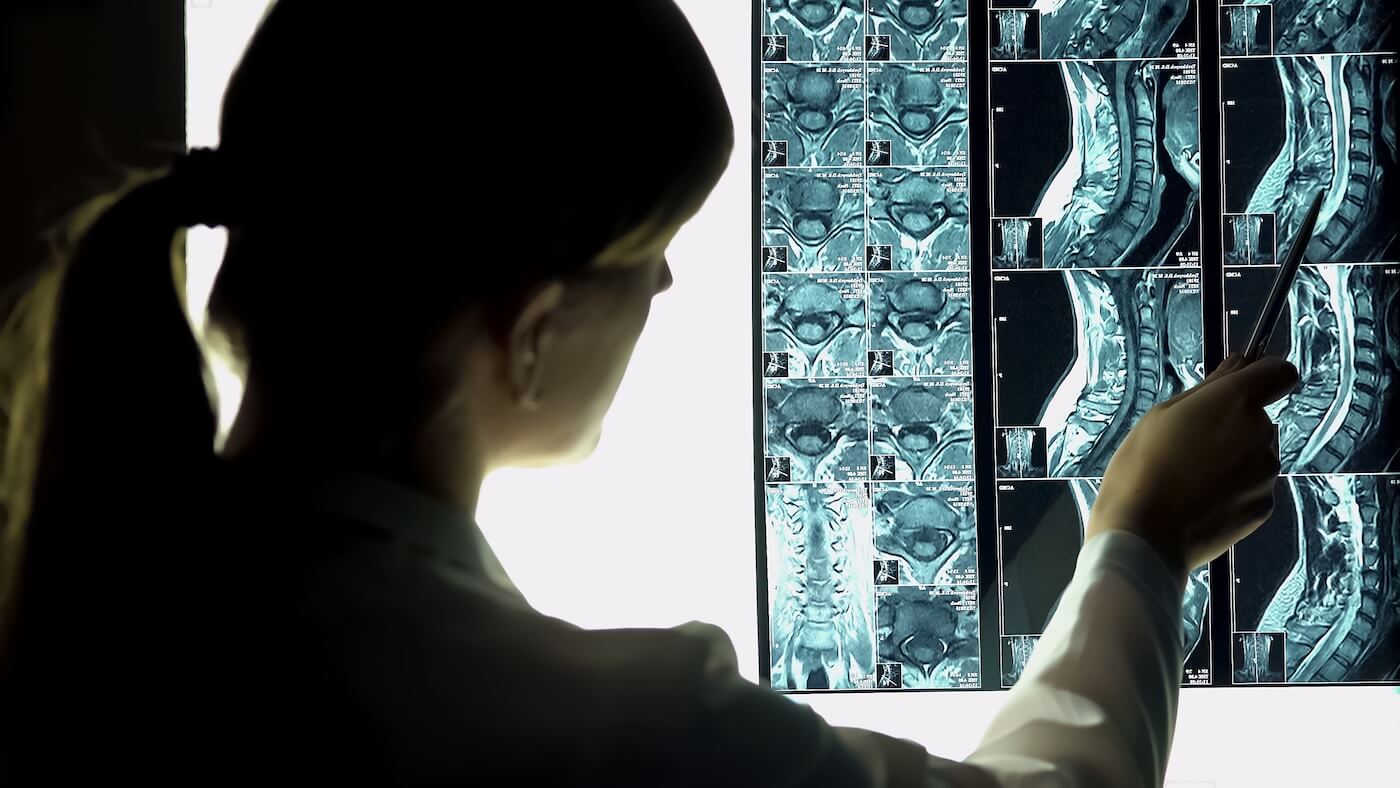Back and Spinal Cord Injuries: Can You Sue for Lifelong Costs?

Written by Molly A. Ullrich

Back and spinal cord injuries can lead to drastic changes in a person’s quality of life, often requiring extensive medical care, rehabilitation, and ongoing support. Many people wonder if they can pursue legal action to recover compensation for the lifelong costs associated with such injuries, including future medical expenses, lost wages, and long-term care needs. Individuals may be able to sue for lifelong costs if the injury was caused by another party’s negligence or wrongful actions.
Understanding legal rights, insurance claims, and the process of documenting damages is crucial for anyone facing a serious back or spinal cord injury. The specifics can depend on the cause of the injury—such as car accidents, slips and falls, or workplace incidents—and the laws in the relevant jurisdiction. This article provides an overview of when a lawsuit may be appropriate and what factors play a role in obtaining compensation for lifelong impacts.
Understanding Back and Spinal Cord Injuries
Back and spinal cord injuries can take many forms and often result in complex, ongoing challenges for those affected. Lifelong costs and significant changes to daily living are common, making legal claims a key consideration for individuals in Denver and elsewhere.
Severity and Types of Injuries
Back and spinal cord injuries range from mild strains to severe cases like paralysis. Common types include:
- Herniated Discs: Discs can rupture or slip, causing pain or nerve issues.
- Fractures: Vertebrae may crack or shatter, leading to instability.
- Sprains and Strains: Ligaments or muscles may be overstretched.
- Spinal Cord Injuries (SCI): Damage can be complete or incomplete, and may cause loss of movement or sensation.
In Denver, cases leading to a back injuries lawsuit often involve car accidents, falls, or workplace incidents. Severe spinal cord injuries can result in partial or total loss of function below the injury site. Recovery depends on both the type and location of the injury, as well as immediate medical response.
Long-Term Impact on Quality of Life
Back and spinal cord injuries often cause chronic pain, limited mobility, and increased vulnerability to other health conditions. Physical limitations may restrict the ability to work or perform daily activities without assistance.
People with spinal cord injuries may need adaptive equipment, such as wheelchairs or home modifications. Psychological effects, including depression and anxiety, are common and can significantly alter one’s social relationships and employment prospects.
When individuals sue for spinal cord injury in Denver, they frequently factor in these life changes. The effects extend beyond physical symptoms, impacting independence and participation in community life.
Potential Lifelong Costs
Expenses quickly accumulate after a back or spinal cord injury. Direct costs include ongoing medical treatments, surgical procedures, and rehabilitation. For many, long-term care costs such as personal aides or nursing facilities must be considered.
Indirect costs can be significant. These cover lost wages, diminished future earning capacity, and home or vehicle modifications. Additional expenses might involve psychological counseling, adaptive technologies, and recurring medical supplies.
A back injuries lawsuit seeks to recover compensation for both current and future financial burdens. In Denver, courts often examine detailed life-care plans and expert testimony to assess lifelong costs when individuals sue for spinal cord injury. This assessment is crucial for ensuring that the affected person receives necessary financial support.

Legal Options to Sue for Lifelong Costs
Victims of back and spinal cord injuries may face ongoing medical care and reduced earning capacity. Legal action can address these long-term needs through compensation for both economic and non-economic losses.
Eligibility to File a Lawsuit
Eligibility depends on several factors:
- Cause of Injury: The injury must usually result from another party’s negligence, recklessness, or intentional act (e.g., car accidents, medical malpractice, workplace incidents).
- Proof of Liability: Strong evidence is required to show how the other party’s actions directly caused the spinal injury.
- Statute of Limitations: Each state enforces strict deadlines for filing, often ranging from 1 to 4 years after the injury.
Certain parties—such as employers, property owners, healthcare providers, and product manufacturers—can be liable. Minors or individuals unable to make legal decisions may have guardians file on their behalf. Claimants must also demonstrate the extent of their lifelong costs, including rehabilitation and assistive devices.
Relevant Legal Precedents
Legal claims for spinal injuries are influenced by case law:
- Landmark Cases: Courts have generally supported large compensatory awards when lifelong care is needed, such as in Anderson v. Smith Corp., where damages covered home modifications and regular caregiving.
- Precedent on Future Damages: Courts often require expert testimony (by physicians, life-care planners, or economists) to substantiate lifelong costs.
- Comparative Fault: In states with comparative negligence laws, compensation may be adjusted if the injured party shares blame.
These precedents make it clear that judges and juries recognize the financial burdens of permanent injury. Recoveries can be substantial, but only if evidence clearly outlines the need for lifetime care.
Types of Compensation Available
Plaintiffs may pursue various forms of compensation in a spinal injury lawsuit:
| Type of Compensation | Examples |
| Medical Expenses | Surgeries, hospitalizations, medications |
| Rehabilitation Costs | Physical/occupational therapy, adaptive equipment |
| Lost Earnings | Past and future lost wages and reduced capacity |
| Home and Vehicle Modifications | Wheelchair ramps, lifts, accessible vehicles |
| Pain and Suffering | Physical pain, emotional distress |
| Loss of Consortium | Impact on family relationships |
Courts may also award punitive damages in cases of gross negligence or malicious acts. Claims for ongoing care rely heavily on documentation and expert analysis to support projected costs. Litigation can lead to lump-sum payments or structured settlements covering future needs.
The Legal Process and How Smith & Weidinger, PLLC Can Help
Those dealing with back or spinal cord injuries face unique legal and financial challenges. Smith & Weidinger, PLLC offers specific experience in these complex cases, focusing on compensation for both immediate and future needs.
Navigating the Claims Process
The process starts by investigating the cause of the injury and gathering detailed documentation. Medical records, accident reports, witness statements, and expert medical opinions are key pieces of evidence needed to build a strong case.
Smith & Weidinger, PLLC works to establish liability, identify all at-fault parties, and pursue compensation from insurers or responsible parties. Statutes of limitations may restrict the time available to file a claim, making swift and informed action essential. The firm assists clients by handling communications, filing paperwork, and meeting all procedural requirements to avoid delays or denials.
A clear timeline often looks like:
| Step | Description |
| Initial Consultation | Review facts, discuss injuries |
| Evidence Collection | Obtain records and expert opinions |
| Claim Submission | File with appropriate parties |
| Negotiation/Litigation | Pursue fair settlement or trial |

Role of Experienced Injury Attorneys
Serious injury cases involve multiple legal complexities and negotiation challenges. Smith & Weidinger, PLLC’s attorneys have direct experience with cases involving permanent impairment and ongoing medical needs.
Injury attorneys negotiate with insurance companies, leveraging medical evidence to support claims for both current and anticipated costs. When settlement offers fall short, Smith & Weidinger, PLLC is prepared to litigate in court on the client’s behalf. Our knowledge allows them to counter common tactics used to minimize claims, ensure clients understand their options, and keep cases moving forward.
Clients benefit from direct communication, realistic case assessments, and advocacy that prioritizes their long-term interests at every stage.
Securing Future Financial Stability
Spinal cord injuries frequently result in significant, ongoing expenses. These may include rehabilitation, assistive devices, home modifications, attendant care, and loss of future earnings.
Smith & Weidinger, PLLC focuses on documenting all potential future costs using medical projections and financial experts. We assemble life care plans and other evidence to support the full value of client claims. This ensures the compensation sought covers not only present damages but also the costs of lifelong care and reduced earning capacity.
By structuring settlements or jury awards to account for inflation, ongoing therapies, and changing needs, the firm aims to safeguard the financial security of clients and their families.
Conclusion and the Importance of Legal Support
Securing funds for lifelong care after a back or spinal cord injury often requires navigating complex legal and medical systems. Victims may face long-term costs for surgeries, rehabilitation, and equipment, making early action critical.
Qualified legal support can help individuals gather evidence, calculate future expenses, and negotiate with insurance companies. Many lawyers work on a contingency fee basis, so injured parties may not have to pay unless the case is successful.
Key benefits of legal support:
- Guidance through legal processes
- Accurate valuation of long-term costs
- Access to expert witnesses
- Negotiation with insurers or at-fault parties
Legal professionals are familiar with state laws and deadlines that can impact a claim. Missing a deadline could limit a person’s ability to recover necessary funds.
Choosing an experienced attorney increases the likelihood of covering future medical care and ongoing support. For those facing lifelong challenges, having knowledgeable legal counsel provides clarity and direction.
Note: The information provided in this blog post has been compiled from publicly available and secondary sources. While we strive for accuracy, some details may become outdated or contain inadvertent errors. If you believe any information is incorrect or requires updating, please contact Smith & Weidinger so that we may review and make the appropriate corrections.
Disclaimer: This blog post is for informational purposes only and is not intended as a solicitation for business. The photo used is not from the scene of the incident described. Viewing this content does not create an attorney-client relationship with Smith & Weidinger. If you have been injured in an accident, please seek immediate medical attention and then consult with a qualified attorney to discuss your legal rights and options.










